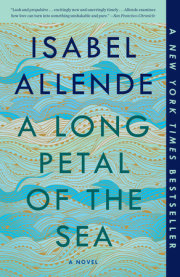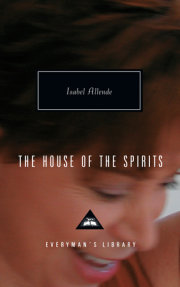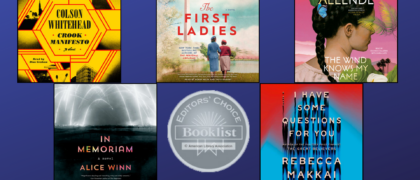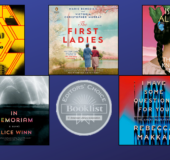The Adlers
Vienna, November 1938 A sense of misfortune hung in the air. From the early morning hours, a menacing breeze had swept through the streets, whistling between the buildings, forcing its way in through the cracks under doors and windows.
“Just winter settling in,” Rudolph Adler murmured to himself in an attempt to lighten his mood. But he couldn’t blame the weather for the tightness in his chest, which he’d felt for several months now.
The stench of fear, like rust and rotting garbage, clung to his nostrils; neither his pipe tobacco nor his citrus-scented aftershave lotion could mask it. That afternoon, the stink of dread stirred up by the wind was suffocating, making him feel dizzy and nauseous. He decided to turn away the patients left in his waiting room and close up early. Surprised, his assistant asked if he was ill. She’d worked with the doctor for eleven years and had never known him to shirk his duties; he was a punctual, methodical man.
“Nothing serious, only a cold, Frau Goldberg. I’ll go home and rest,” he answered.
They tidied the office and disinfected the instruments, then said goodbye at the door as they did every evening, neither suspecting that they’d never see each other again. Frau Goldberg headed to the streetcar stop and Rudolph Adler walked the few blocks to the pharmacy at his usual brisk pace, hat in one hand and doctor’s bag in the other, his shoulders hunched. The sidewalk was damp and the sky cloudy; it had been drizzly and he predicted they’d soon see one of those autumn rainstorms that always caught him unawares, without an umbrella. He’d walked those streets a thousand times and knew them by memory, but he never stopped admiring his city, one of the prettiest places in the world with its Baroque and Art Nouveau buildings coexisting harmoniously, the majestic trees that had begun dropping their leaves, the equestrian statue in the neighborhood square, the bakery’s window display with its spread of delicate pastries, and the antiques shop crammed with curiosities. But that afternoon he barely raised his eyes from the pavement. He had the weight of the world on his shoulders.
The troubling rumors had begun that morning with news of an assault in Paris: a German diplomat shot five times and killed by a young man, a Polish Jew. Spokespersons for the Third Reich called for revenge.
Since that March, when Germany had annexed Austria and the Nazi Wehrmacht paraded its military pomp and circumstance through the heart of Vienna to a cheering, jubilant crowd, Rudolph Adler had been plagued with fear. His worries had begun a few years prior and only worsened as Nazi power was consolidated through increased financing and a growing stockpile of weapons. Hitler used terror as a political tactic, taking advantage of discontent over economic woes after the humiliating defeat in the Great War and the Great Depression in 1929. In 1934, Austrian chancellor Engelbert Dollfuss was assassinated in a failed government coup, and since then eight hundred others had been killed in various attacks. The Nazis intimidated their detractors, provoked disturbance, and pushed Austria to the brink of civil war. At the start of 1938, internal violence was so untenable that Germany, from the other side of the border, exerted pressure to annex the troubled country as one of its provinces. Despite the concessions that the Austrian government had made to German demands, Hitler ordered an invasion. The Nazi party had laid the groundwork for the invading force to be met with open arms by the majority of the population. The Austrian government surrendered and two days later Hitler himself entered Vienna, triumphant. The Nazis quickly seized total control. Opposition was declared illegal. German laws and SS and Gestapo oppression, as well as antisemitic policies, went into immediate effect.
Rudolph’s wife, Rachel, who had always been rational and practical, without the slightest tendency toward catastrophic thinking, was now almost paralyzed with anxiety and only functioned with the help of medication. They both tried to keep their son, Samuel, in the dark about what was happening, to protect his innocence, but the boy, who was about to turn six, had the maturity of an adult; he observed, listened, and understood without asking questions. Rudolph had initially prescribed his wife the tranquilizers he used to treat anxious patients, but when they seemed to have no effect, he turned to other, more powerful drops, which he obtained in opaque unmarked bottles. He could’ve used the sedatives as much as his wife, but he would not risk jeopardizing his professional acumen.
The drops were provided to him in secret by Peter Steiner, a pharmacist and friend of many years. Adler was the only doctor Steiner trusted with his own family’s health, and no government decree forbidding interaction between Aryans and Jews could change the respect they had for each other. In recent months, however, Steiner had been forced to avoid Adler in public, since he couldn’t afford any trouble with the neighborhood Nazi committee. In the past, they’d played thousands of games of poker and chess, exchanged books and newspapers, and taken regular hiking and fishing trips together to escape their wives, as they said jokingly, and in Steiner’s case to flee from his horde of children. Now Adler no longer participated in the poker games in the back room of Steiner’s pharmacy. The pharmacist met Adler at the back door of his shop and provided the medication for Rachel without registering it on the books.
Before the annexation, Peter Steiner had never questioned Adler’s roots and considered the doctor to be just as Austrian as he was. He knew the family was Jewish, as were 190,000 other Austrian citizens, but that meant nothing to him. He was agnostic; the Christianity he ’d been raised with seemed to him as irrational as all other religions, and he knew that Rudolph Adler felt the same way, though he upheld some Jewish customs out of respect for his wife. Rachel felt it was important that their son be raised in the Jewish community and traditions. On Friday evenings, the Steiners were often invited to Shabbat at the Adler home. Rachel and Leah, her sister-in-law, spared no detail: the best table linens, new candles, the fish recipe that had been passed down from a grandmother, fresh loaves of bread, and abundant wine. Rachel was close to Leah, who had been widowed young and had no children. Leah was devoted to her brother Rudolph’s small family, and although Rachel begged the woman to move in with them, she insisted on living alone, visiting often. Leah was sociable and participated in various programs at the synagogue to help the neediest members of the community. Rudolph was the only brother she had left, since the youngest had emigrated to a kibbutz in Palestine, and Samuel was her only nephew. Rudolph presided over the Shabbat prayer, as was expected of him as head of household. With his hands on Samuel’s head, he asked God to bless and protect him, to grant him grace and peace. On more than one occasion Rachel caught a wink exchanged between her husband and Peter Steiner after the prayer, but she let it slide, knowing it wasn’t meant in mockery but merely a gesture of complicity between two nonbelievers.
The Adlers belonged to the secular and educated middle class that characterized Viennese society in general and Jewish society in particular. Rudolph had explained to Peter that for centuries his people had been discriminated against, persecuted, and expelled from many lands, which was why they valued education over material wealth. They could be robbed of their belongings, as had occurred repeatedly throughout history, but no one could take away their intellectual assets. The title of doctor was more highly prized than a fortune in the bank. Rudolph came from a family of craftsmen, proud to count a physician among them. The profession afforded him prestige and authority, though in his case it indeed did not translate to material wealth. Rudolph Adler was not a sought-after surgeon or a professor at the storied University of Vienna, but a family physician, hard-working and generous, who treated more than half of his patients for free.
Copyright © 2023 by Isabel Allende. All rights reserved. No part of this excerpt may be reproduced or reprinted without permission in writing from the publisher.



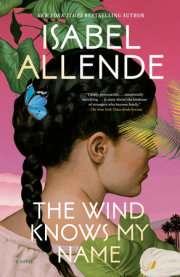
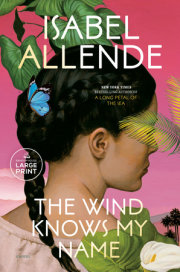
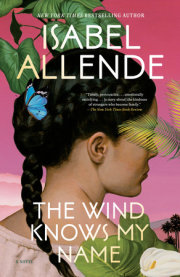

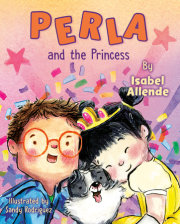
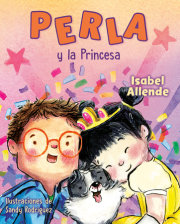
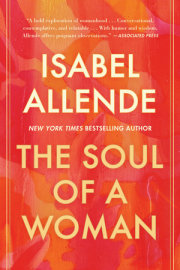



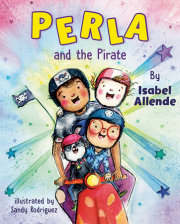
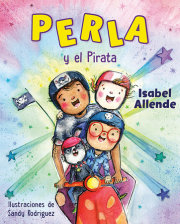

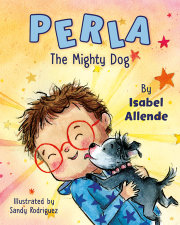
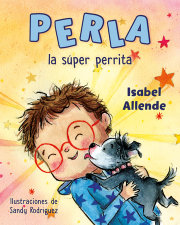
![Violeta [English Edition]](https://images.penguinrandomhouse.com/cover/9780593496220?width=180)
